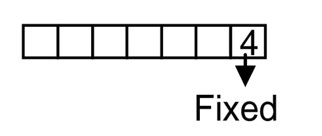53. If 4-digit numbers greater than 5,000 are randomly formed from the digits0, 1, 3, 5, and 7, what is the probability of forming a number divisible by 5 when, (i) The digits are repeated? (ii) The repetition of digits is not allowed?
53. If 4-digit numbers greater than 5,000 are randomly formed from the digits0, 1, 3, 5, and 7, what is the probability of forming a number divisible by 5 when, (i) The digits are repeated? (ii) The repetition of digits is not allowed?
53. (a) No. of ways of forming a four-digit number greater than 5000 from the given digit 0, 1, 3, 5, 7. and digit repetition is allowed can be done in such a way either 5 or 7 and occupy the thousands' place and any of the digits 0, 1, 3, 5, 7 can occupy the remaining 3 places.
Hence, the r
Similar Questions for you
3, 4, 5, 5
In remaining six places you have to arrange
3, 4, 5,5
So no. of ways
Total no. of seven digits nos. =
Hence Req. prob.

f (x) = x? – 4x + 1 = 0
f' (x) = 4x³ – 4
= 4 (x–1) (x²+1+x)
=> Two solution
Let z be equal to (x + iy)
(x + iy) + (x – iy) = (x + iy)2 (i + 1)
Equating the real & in eg part.
(i) & (ii)
4xy = -2x Þ x = 0 or y =
(for x = 0, y = 0)
For y =
When
gives c = 1
So
sum of all solutions =
Hence k = 42
Each element of ordered pair (i, j) is either present in A or in B.
So, A + B = Sum of all elements of all ordered pairs {i, j} for and
= 20 (1 + 2 + 3 + … + 10) = 1100
Taking an Exam? Selecting a College?
Get authentic answers from experts, students and alumni that you won't find anywhere else.
On Shiksha, get access to
Learn more about...
Didn't find the answer you were looking for?
Search from Shiksha's 1 lakh+ Topics
Ask Current Students, Alumni & our Experts
Have a question related to your career & education?
See what others like you are asking & answering

